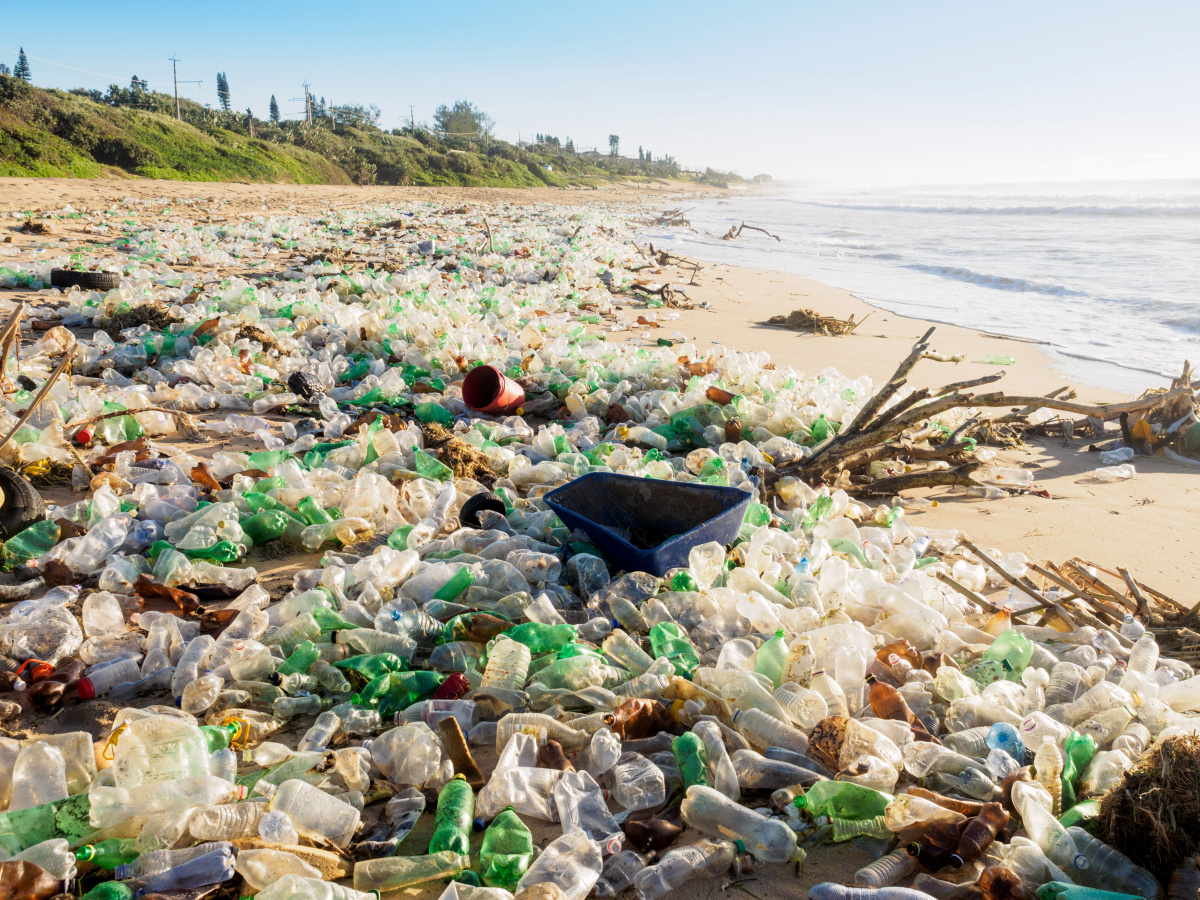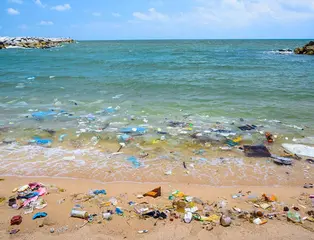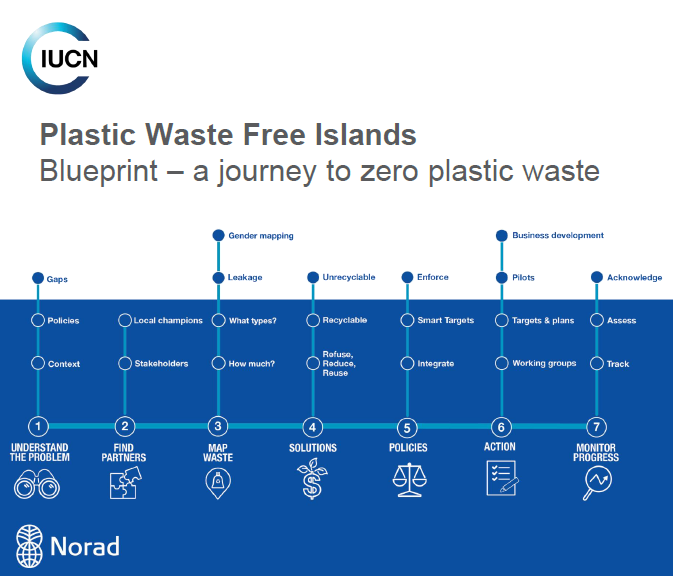Plastic Waste Free Islands (PWFI)
In 2019, with support from the Norwegian Agency for Development Cooperation (Norad), IUCN launched the Plastic Waste Free Islands (PWFI) project, as part of its global Close the Plastic Tap Programme. PWFI is a three-year project working in six islands in the Caribbean and Pacific. Implemented in Fiji, Vanuatu and Samoa in Oceania and Antigua and Barbuda, Saint Lucia and Grenada in the Caribbean, the project seeks to promote island circular economy and to demonstrate effective, quantifiable solutions to addressing plastic leakage from Small Island Developing States (SIDS).
The project also aims to repurpose waste into commercially viable products, thereby generating job opportunities and income for local communities. Key stakeholders from governments, private sector and civil society, united in a vibrant learning and leadership network, will co-generate and demonstrate demand-responsive solutions to plastic waste incorporating policy, business operations, and citizen behaviour changes.
Evidence and lessons will be packaged into a scalable and replicable ‘blueprint’ for use beyond the initial six target islands. Key regional bodies will develop and endorse the blueprint for looking at entire value chains, from production to disposal, and also at plastic usage and wastage in different sectors (such as tourism and fisheries).
By adding value to plastic waste and deploying solutions for better waste disposal, there will be a measurable impact on waste flows from source to sea, leading to reduced plastic leakage into the environment.
In the Pacific, the PWFI project was implemented in Fiji, Samoa and Vanuatu. To view the county overviews, refer to the documents below:
 Photo: shutterstock
Photo: shutterstock


